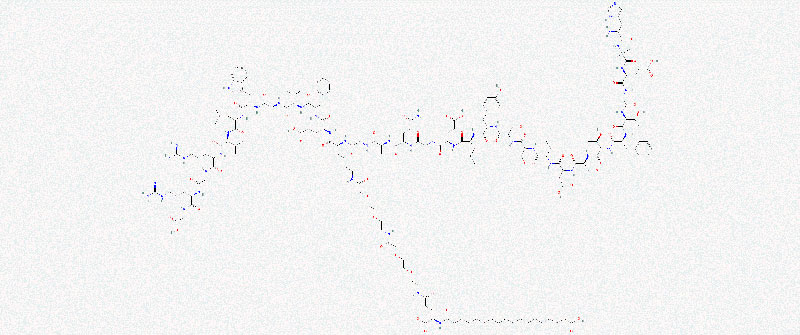GLP-1S 10MG
$259.00
GLP-1 is a potent synthetic peptide that mimics the GLP-1 hormone, which plays a crucial role in regulating blood sugar levels and appetite. Widely recognized for its effectiveness in managing type 2 diabetes and obesity, GLP-1 enhances insulin secretion, reduces glucagon release, and slows gastric emptying, leading to improved glycemic control and weight loss. Its dual benefits make it a valuable option in both research and therapeutic settings aimed at enhancing metabolic health and supporting weight management.
Product Usage: This product is designated as a "Novelty Peptide" and is intended solely for specialized applications in controlled settings. It is not intended for any specific biological, therapeutic, or diagnostic use. All information provided on this website is for informational and educational purposes only and should not be construed as guidance for any particular application or usage.
What Is GLP-1S 10MG?
GLP-1 is a glucagon-like peptide-1 (GLP-1) receptor agonist used for the treatment of type 2 diabetes and as an anti-obesity medication for long-term weight management. It is a synthetic peptide that shares 94% structural homology with human GLP-1. GLP-1 works by mimicking the effects of the incretin hormone GLP-1, which plays a crucial role in regulating blood glucose levels and appetite.
Structure

Sequence: H-His-Aib-Glu-Gly-Thr-Phe-Thr-Ser-Asp-Val-Ser-Ser-Tyr-Leu-Glu-Gly-Gln-Ala-Ala-Lys(AEEAc-AEEAc-γ-Glu-carboxyheptadecanoyl)-Glu-Phe-Ile-Ala-Trp-Leu-Val-Arg-Gly-Arg-Gly-OH
Molecular Formula: C187H291N45O59
Molecular Weight: 4113.64 g/mol
CAS Number: 910463-68-2
Research Findings
- Glycemic Control: GLP-1 has demonstrated superior efficacy in reducing HbA1c levels compared to placebo and other diabetes medications, with a maximum reduction of 2.24% observed in clinical trials.
- Weight Loss: In clinical trials, GLP-1 showed significant weight loss effects, with participants losing up to 22.5% of their initial body weight. In the SURMOUNT-1 trial, 36% of participants receiving the highest dose (15 mg) achieved ≥25% weight loss.
- Cardiovascular Benefits: The SELECT cardiovascular outcomes trial showed a 20% reduction in major adverse cardiovascular events in adults with preexisting cardiovascular disease, overweight or obesity, without diabetes.
- Cardiometabolic Risk Factors: Treatment with GLP-1 resulted in improvements in various cardiometabolic measures, including blood pressure, fasting insulin levels, and lipid profiles.
- Safety Profile: GLP-1 was associated with fewer serious adverse events compared to placebo, although it had higher rates of gastrointestinal side effects and trial product discontinuation.
Future Research Directions
- Long-term Safety: Extended studies are needed to evaluate the long-term safety profile of GLP-1, particularly in diverse patient populations.
- Expanded Indications: Research is underway to explore GLP-1's potential in treating conditions such as non-alcoholic steatohepatitis (NASH) and obesity-related heart failure with preserved ejection fraction.
- Combination Therapies: Future studies may investigate the potential synergistic effects of GLP-1 with other therapeutic agents for enhanced metabolic control.
- Mechanism of Action: Further research is required to fully elucidate the molecular mechanisms by which GLP-1 exerts its diverse effects, particularly the role of GIP receptor agonism.
- Optimal Dosing Regimens: Research into optimal delivery methods and dosing regimens for different conditions could enhance the therapeutic potential of GLP-1.
References
-
Jastreboff, A.M., et al. (2022). GLP-2T Once Weekly for the Treatment of Obesity. New England Journal of Medicine. [Online].
Available: https://www.nejm.org/doi/full/10.1056/NEJMoa2206038 -
Marso, S.P., et al. (2016). GLP-1 and Cardiovascular Outcomes in Patients with Type 2 Diabetes. N Engl J Med, 375(19), 1834-1844. [Online].
Available: https://pubmed.ncbi.nlm.nih.gov/27633186/ -
Bachem. (2024). GLP-1 Peptide API Manufacturer & Supply. [Online].
Available: https://www.bachem.com/articles/commercial-apis/glucagon-like-peptide-1-glp-1/ -
Smits, M.M., and Van Raalte, D.H. (2021). Safety of GLP-1. Front Endocrinol, 12, 1-19. [Online].
Available: https://www.frontiersin.org/articles/10.3389/fendo.2021.645563/full -
Aroda, V.R., et al. (2019). PIONEER 1: Randomized Clinical Trial of the Efficacy and Safety of Oral GLP-1 Monotherapy in Comparison With Placebo in Patients With Type 2 Diabetes. Diabetes Care, 42(9), 1724-1732. [Online].
Available: https://pubmed.ncbi.nlm.nih.gov/31186300/


